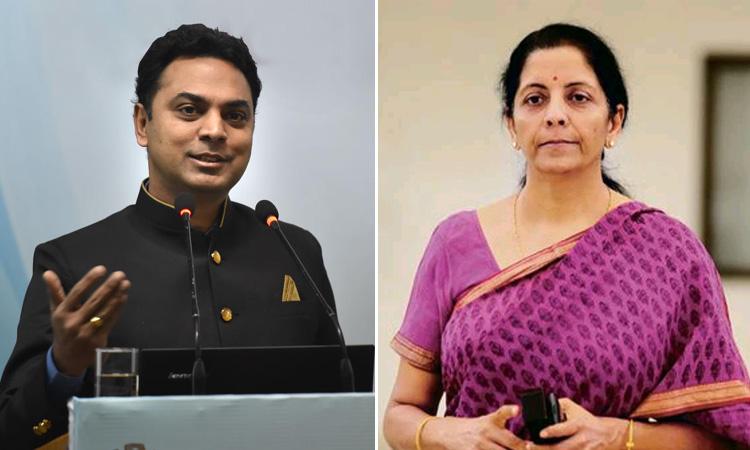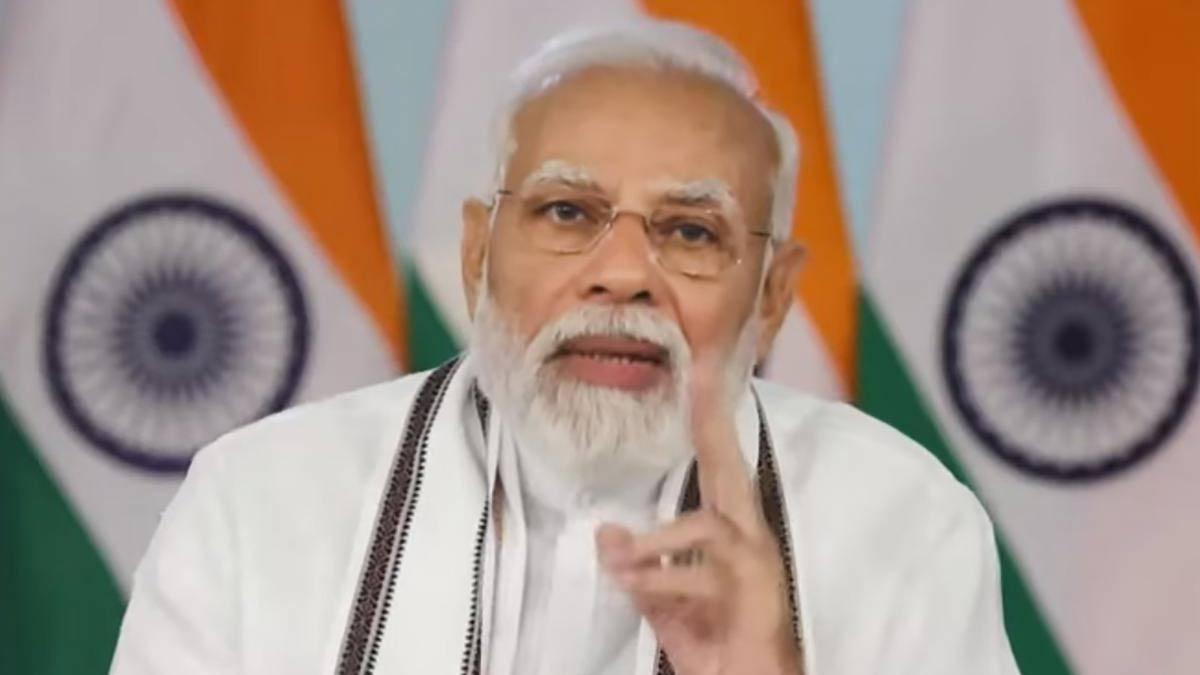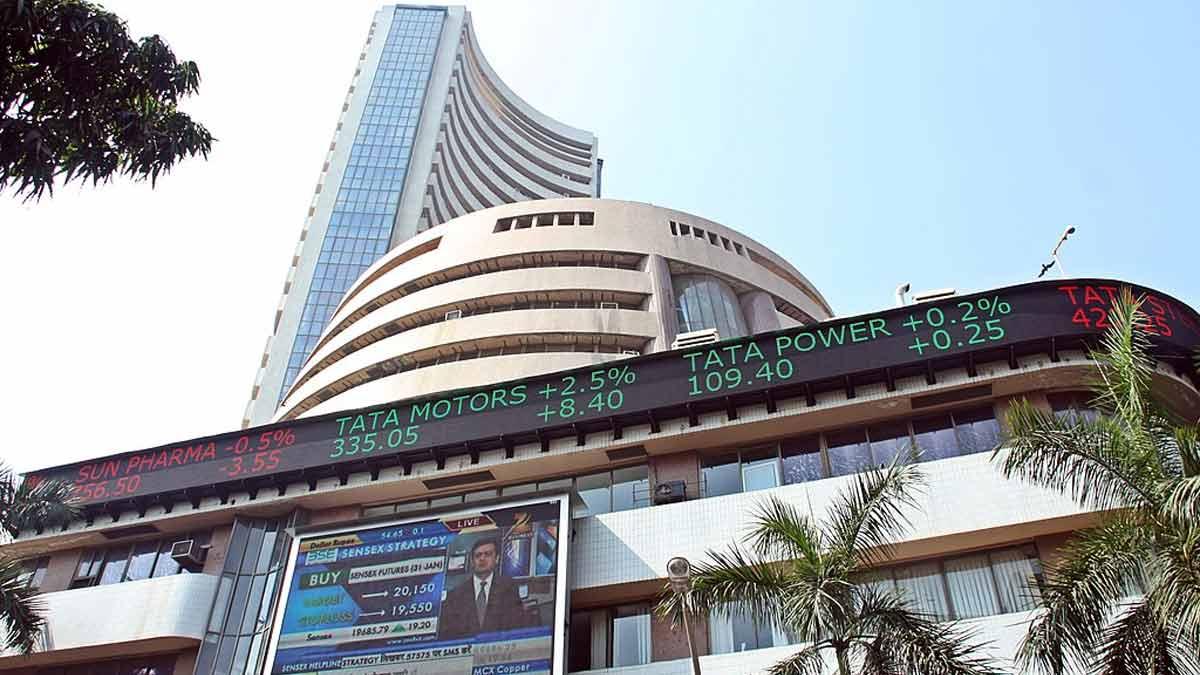India's GDP is estimated to contract by 7.7 per cent during the current fiscal, said the Economic Survey 2020-21 on Friday.
The document which was tabled by Finance Minister Nirmala Sitharaman in the Lok Sabha in its debt simulations for worst-case debt analysis assumed the contraction at (-) 7.7 per cent.
According to the survey, the real growth rate for FY22 was assumed at 11.5 per cent based on IMF estimates.
The document prepared by the Finance Ministry's Chief Economic Adviser Krishnamurthy V. Subramanian said general government debt for FY20 is taken as 73.8 per cent of the GDP.
"The primary deficit for FY21 is assumed to be 6.8 per cent of GDP... Primary deficit for FY22 is assumed to be 2.5 per cent of GDP.
"The declining trajectory of primary deficit is assumed to reach 1.5 per cent of GDP by FY24, and it is assumed to stay at 1.5 per cent thereafter," it added.
Besides, the survey cited that nominal interest rate is assumed to be 6 per cent.
"As on January 26, 2021, we estimate the weighted average cost of borrowing using the weights of general government borrowing across maturities to be 6 per cent.
"Inflation is taken as 5 per cent, i.e. mid-point of the range of 4 per cent - 6 per cent."
2 more years for economy to return to pre-pandemic levels: Economic Survey 2020-21
Contrary to expectations of a faster growth in FY22 helping to shave off the sharp GDP contractions this year, the Indian economy will take at least two more years to return to the growth levels achieved in the pre-pandemic period, the Economic Survey 2020-21 said.
The projection on return of pre-pandemic growth is based on IMF projections of 11.5 per cent real GDP growth in 2021-22 and a 6.8 per cent growth in 2022-23. With these growth projections, Indians would once again return to become the fastest growing economy in the world.
The survey has projected that the country's real GDP in FY22 will grow by 11 per cent after an estimated contraction of 7.7 per cent during the current fiscal.
The survey said that Covid led to a once in a century global crisis in 2020. While the lockdown resulted in GDP contracting by 23.9 per cent in Q1 of FY21, the recovery has been V shaped thereafter, the survey noted.
Economic Survey FY21 slams 'biased' sovereign credit ratings
Coming down hard on sovereign credit ratings, the Economic Survey 2020-21 said that the ratings do not reflect the fundamentals of the Indian economy.
Describing the sovereign credit ratings as "noisy, opaque and biased", the document prepared by the Finance Ministry's Chief Economic Adviser Krishnamurthy V Subramanian said that these credit ratings also damage flows of foreign portfolio investments.
The survey questioned whether India's sovereign credit ratings reflect its fundamentals, and found evidence of a systemic under-assessment of India's fundamentals as reflected in its low ratings over a period of at least two decades.
"India's fiscal policy must, therefore, not remain beholden to such a noisy/biased measure of India's fundamentals and should instead reflect Gurudev Rabindranath Thakur's sentiment of a mind without fear," it said.
It added that India's fiscal policy should be guided by considerations of growth and development rather than be restrained by "biased and subjective" sovereign credit ratings.
It recommeded that developing economies must come together to address this bias and subjectivity inherent in sovereign credit ratings methodology to prevent exacerbation of crises in future.
The pro-cyclical nature of credit ratings and its potential adverse impact on economies, especially low-rated developing economies, must be expeditiously addressed, it suggested.
Noting that India has already raised the issue of pro-cyclicality of credit ratings in G20, it said that the Financial Stability Board (FSB) is now focusing on assessing the pro-cyclicality of credit rating downgrades.
Emphasising that India's sovereign credit ratings cohort - countries rated between A+/A1 and BBB-/Baa3 for S&P/ Moody's - India is a clear outlier on several parameters, i.e. it is rated significantly lower than mandated by the effect on the sovereign rating of the parameter."
It noted that India is an outlier on parameters like GDP, growth rate, inflation, general government debt (as per cent of GDP), cyclically adjusted primary balance (as per cent of potential GDP), current account balance (as per cent of GDP), political stability, rule of law, control of corruption, investor protection, ease of doing business, short-term external debt (as per cent of reserves), reserve adequacy ratio and sovereign default history.
"This outlier status remains true not only now but also during the last two decades," it said.


















